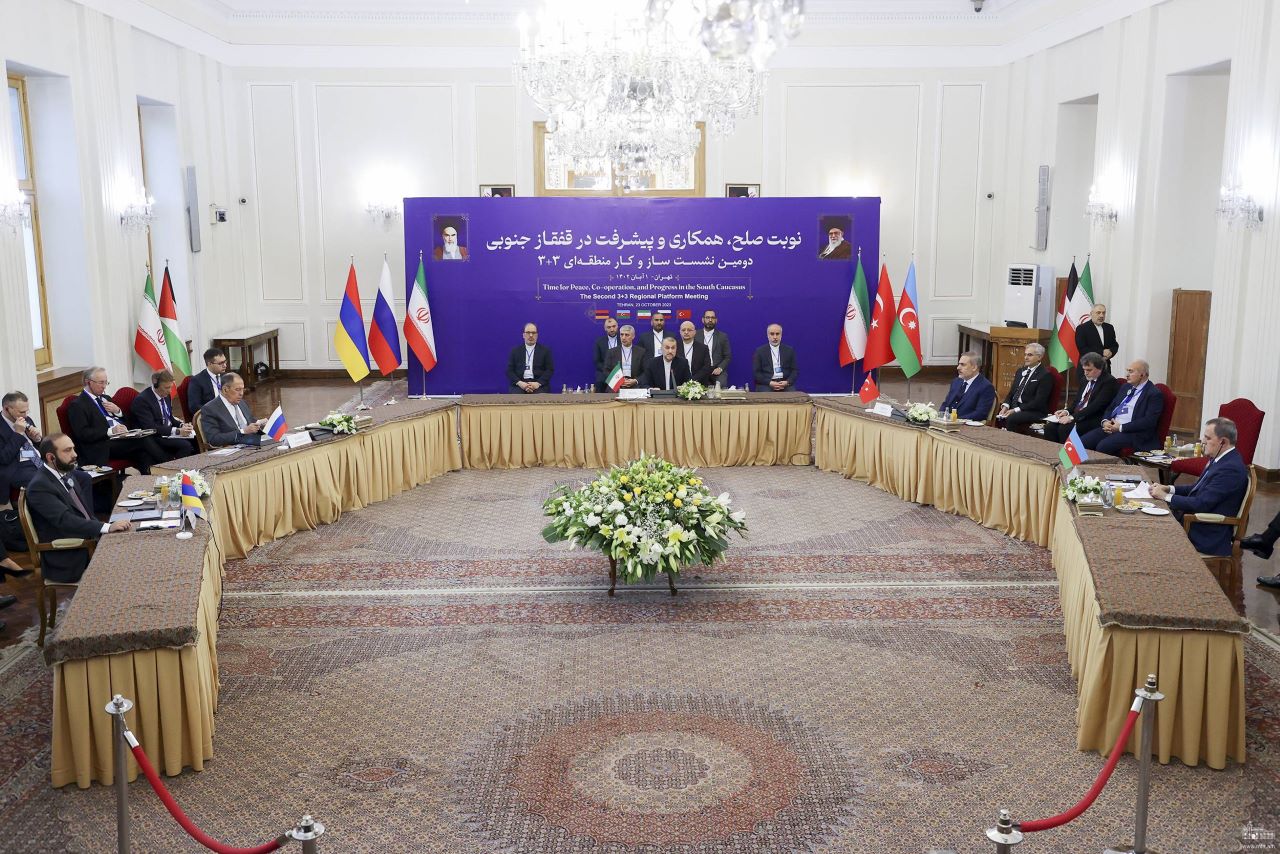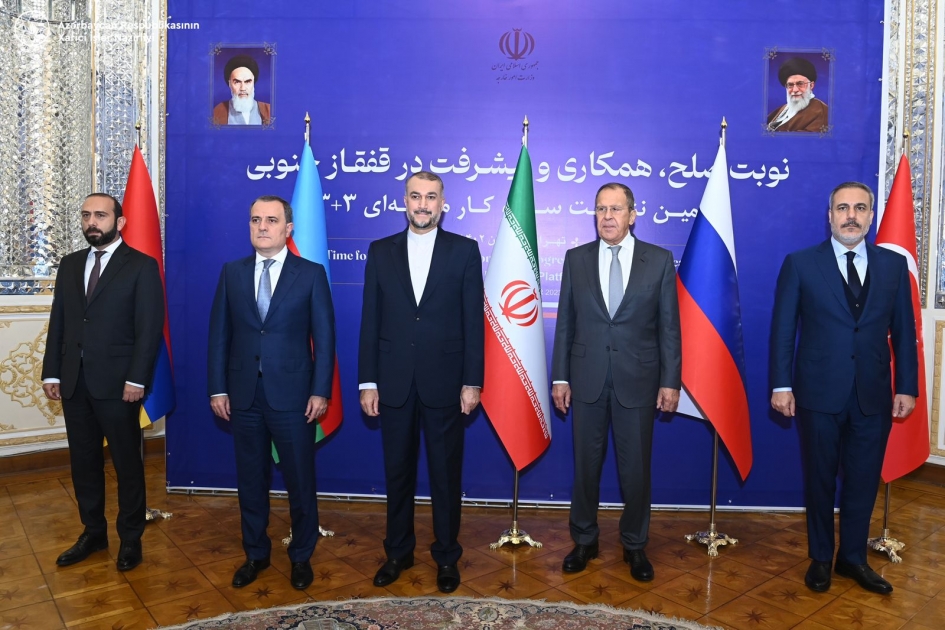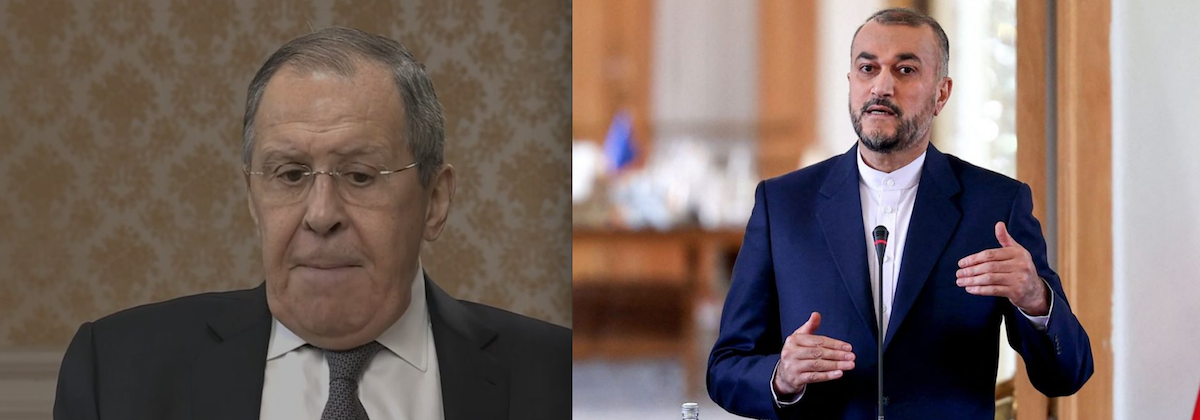
“3+3” meeting in Istanbul
On October 18, Istanbul will host another meeting in the “3+3” format, with Armenia’s Foreign Minister Ararat Mirzoyan expected to participate. The agenda details have not yet been disclosed.
Following the 2020 Karabakh war, Turkey proposed a new format for addressing regional issues, known as “3+3.” This format includes Turkey, Iran, and Russia on one side, and Armenia, Azerbaijan, and Georgia on the other. However, Georgia has consistently refused to participate in a format that includes Russia, despite recent impressions that the Georgian government may be aligning more closely with Moscow. Nevertheless, the format continues to be referred to as “3+3” rather than “3+2.”
Since joining the format, the official stance of Yerevan has been that Armenia agreed to participate under the condition that topics already being discussed in other formats would not be brought into this one.
Political analyst Robert Ghevondyan told JAMnews that Yerevan has not shifted its position. According to him, the Armenian authorities, as before, have no intention of discussing key issues within this platform, such as the unblocking of regional communications, the settlement of Armenian-Azerbaijani relations, border delimitation and demarcation agreements, potential enclave exchanges, or other significant matters.
“In general, Armenia is content with this platform remaining largely declarative in nature. Otherwise, there could be a situation where Armenia might face pressure to transfer critical issues to this forum – issues that require the involvement of multiple actors for a resolution. In such a case, decisions would likely be made at the expense of Armenia’s interests,” the political analyst stated.
- ‘3 + 3’ or ‘3 + 2’։ New format for solving problems in South Caucasus
- Economic ties between Georgia and Russia are growing, but Georgia will not participate in 3 + 3 format
- Georgia will not participate in 3+3 meeting in Tehran
Declarative statements from previous meetings
Turkey was the first to announce the creation of the “3+3” format. However, Armenian experts remind us that as early as the 2020 Karabakh war, Iran had already emphasized that regional conflicts should be resolved within the region itself. By late October of that same year, a special representative of the Iranian president had visited the capitals of the regional countries.
The first session of the “3+3” platform took place on December 10, 2021, in Moscow, involving deputy foreign ministers. On October 23, 2023, the second meeting was held in Tehran, this time with foreign ministers in attendance.
Following the meeting, Yerevan issued a joint statement consisting of nine points. The statement underscored the importance of the platform for “constructive dialogue and fostering mutually beneficial cooperation among the countries of the region.” It also noted that the participants viewed economic cooperation as having a positive impact on building mutual trust, improving the welfare of the people, and enhancing regional stability.
“Consultations within the ‘3+3’ regional platform will not evolve into a forum for discussing conflicts. This platform will mainly focus on joint economic activities,” Armenia’s Foreign Minister Ararat Mirzoyan stated in Tehran.
Commentary
Expert at the Center for Security Policy Studies, political scientist Robert Ghevondyan, believes that the upcoming meeting is just another routine gathering, not tied to any significant events. However, he doesn’t rule out the possibility that Russia, Turkey, Iran, and perhaps Azerbaijan, may feel the need or desire to adjust their approaches ahead of the U.S. presidential elections and exchange views on regional issues.
“This agenda largely bypasses Armenia’s interests. Though, if we consider it in a broader context, to some extent, it touches on Armenia’s interests as well. It’s a positive that Armenia will be present, even if only in an observer role,” he said.
According to Ghevondyan, the only expectation Armenia should have from this format is to ensure that the other participants do not “use Armenia’s participation against itself.” For Yerevan, it’s essential that no decision is made to exclude “other actors” from resolving regional issues.
“The participants of the meeting must not be able to interpret our participation as a limitation on Armenia’s interests. For instance, they shouldn’t frame the situation in such a way that since Armenia is already included in this format, there’s no need to address these issues in Brussels, Washington, or Paris.”
He predicts that the situation in this regard will remain unchanged, affirming that for Yerevan, issues concerning the regulation of relations with Azerbaijan and Turkey are outside this format. And given that other formats already exist for discussing those matters, addressing them within this platform is “not very beneficial for Armenia.”
According to the political scientist, “significant, important issues” cannot currently be discussed or resolved within the “3+3” format.
“In the future, if different ruling elites emerge in Russia, Turkey, and Azerbaijan, perhaps this format will gain more importance for Armenia,” he explained.
At this point, Robert Ghevondyan believes that this format holds no tangible benefit for Yerevan. He notes that Armenia’s participation may be “justified by the fact that the country doesn’t intend to worsen relations with the other participating states.”
The political scientist doesn’t rule out that after the meeting in Istanbul, another declarative statement will be issued:
“The statements made after these meetings are so general, with provisions that don’t require any concrete decisions. This leads to the conclusion that these meetings are held just for the sake of meeting. Of course, we may hear statements at the level of ceremonial toasts once again. Armenia can join in, as there’s no harm in participating in a round of toasts.”
Follow us – Twitter | Facebook | Instagram
“3+3” meeting in Istanbul


